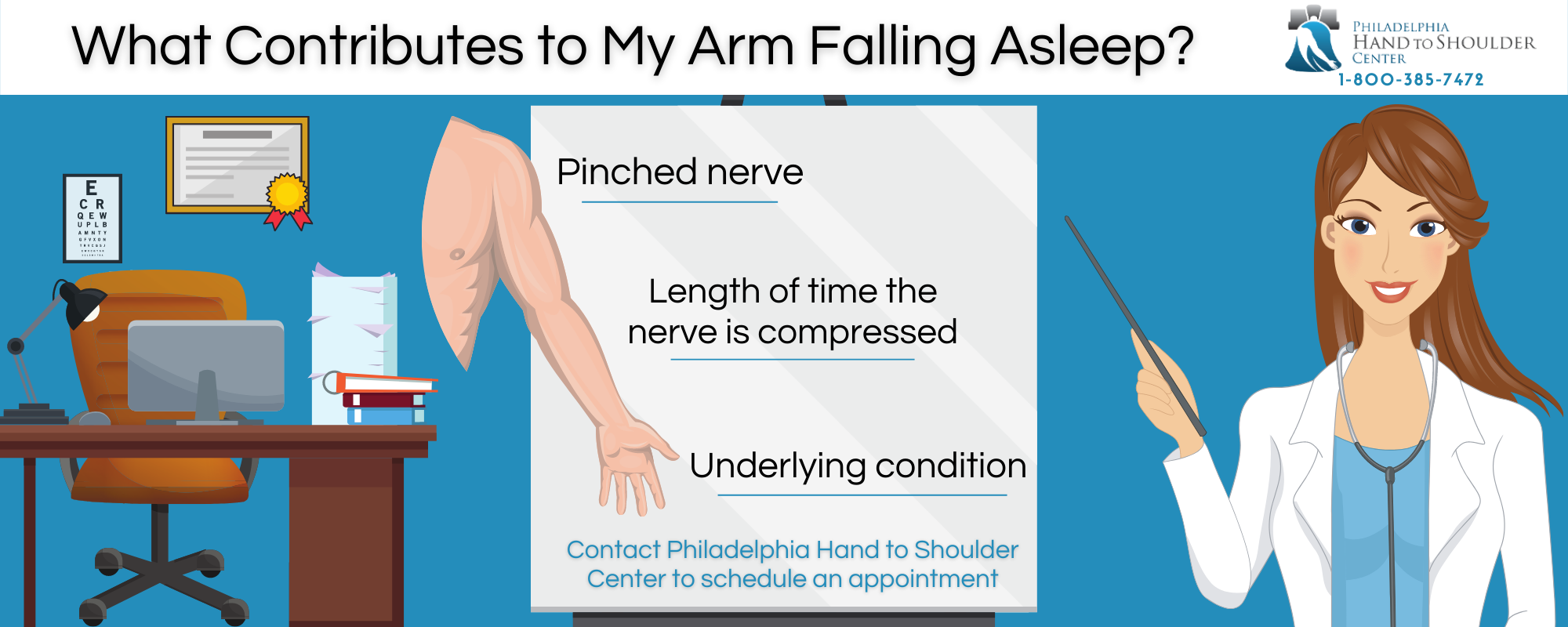
What Does It Mean When Your Hand or Arm Falls Asleep While You’re Sleeping?
The tingling sensation in your hands and arms that happens after you first wake up from a long nap can prove disorienting. The inability to perform even the simplest of tasks until you get full feeling back in your extremities is a minor inconvenience, but what causes the sensation? Does the fact that your arm falls asleep more frequently than others mean that there is a larger issue at play? What is the actual cause of your arm falling asleep at night, and is there any way for you to stop it from happening?

What Is Paresthesia?
The scientific name for the phenomenon that is one of your extremities falling asleep is paresthesia. The clinical definition of paresthesia consists of the abnormal sensation in your body brought on by the sustained compression or irritation of nerves. Usually, this sensation occurs when your hand or arm gets placed in specific positions, such as under your full body weight when you’re sleeping on your side for extended periods. Usually, all it takes to regain feeling in the affected area is to change positions and alleviate the pressure. Typically, paresthesia does not last long once you readjust, though it still could take around 30 minutes to restore full function. However, if the symptoms persist for longer than that and more frequently, it could be a sign of broader and more severe issues.
What Causes Long-Lasting Paresthesia?
When the effects of paresthesia last for longer than expected, a trip to the doctor can help you identify the underlying cause and help you form a strategy to deal with it. If the tingling sensation is caused by a pinched nerve in your back caused by sciatica, then a trip to a licensed chiropractor can be beneficial to your recovery. A herniated disk could also be a potential cause or paresthesia that requires either physical therapy or possible surgery.
In most cases, your arm falling asleep in the middle of the night is not a cause for concern. Most of the time, merely adjusting your position to alleviate the pressure on the pinched nerve will be enough to restore feeling and function to your arm swiftly. However, if the symptoms persist for longer than average, you will need to schedule an appointment with the hand and wrist and arm specialists at the Philadelphia Hand to Shoulder Center. Your appointment can also be conducted through telemed sessions!

Recent Comments